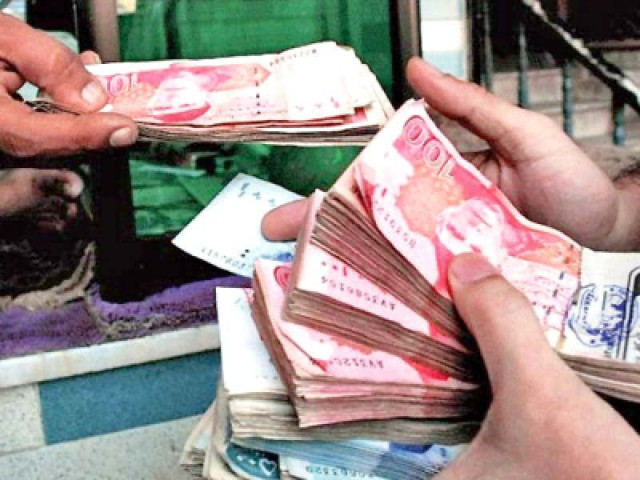Extracting vs attracting taxes
Govts have faced challenge of increasing taxpayers but there has been no success

In classical economic literature, it is believed that revenue should be a byproduct of fiscal policy. In Pakistan, it is rather the opposite and appears that fiscal policy, and even monetary policy, is a byproduct of revenue collection.
What else could one expect with a mere 2 million (less than 1% of population) active taxpayers, and over 65% (or even 80% if indirect income tax is included) indirect tax collection.
While successive governments are grappling with the challenge of increasing taxpayers and the tax base, there has been no remarkable success, despite various tax amnesty schemes.
Why is it so? Probably due to three main reasons, firstly the lack of trust in governments, secondly, the lack of equity in tax system, and thirdly, archaic tax collection institutions and system.
How to build trust in government and utilisation of collected revenue appropriately, is a question that must have been explored umpteen times. Certainly, no successful solution yet. Probably, a change in approach from “forced trust” to “gained trust” might help.
Tax offices are as intimidating to businesspersons as police stations to a normal citizen. If the government and state machinery appear and approach citizens in a friendly and facilitative manner rather than “tax cops”, then revenue will become a byproduct of this trust relationship. Citizens of state ought to consider paying tax as a duty not as a penalty.
On the equity in tax system, it is hard to list the so many inequities that are inbuilt, but it is suffice to say that it is yet another manifestation of elite capture that is recognised even by Prime Minister Imran Khan.
This tax system is by the elite, for the poor. As mentioned before, when the tax system has 80% from indirect taxes, then it is not hard to see who actually pays that, clearly the consumers and end-users, who are neither wealthy nor owners of productive assets.
A citizen earning Rs15,000 per month pays the same amount of sales tax on milk, bread, clothes and utilities as someone earning Rs15 million per month. No, the one earning Rs15 million doesn’t pay the proportionate tax, else Pakistan’s revenue collection would have been entirely different.
Let me give a simple indicator. Calculate the total revenue and profits of corporate sector in Pakistan that is formal/ accounted for, add the dividends and salaries of corporate executives, and then calculate the percentage of tax collected from these sources. The result would be quite revealing.
If you want to add some spice, then calculate the total amount of tax rebates, refunds and other forms of subsidies given in a year. And certainly, these are not given to the poor people.
The so-called subsidy given on electricity, petrol, etc is not exactly a benefit that could be compared with the tax rebate or refund given to a business that earns billions of rupees. The latter is an actual benefit while the former is more of an illusion of being a subsidy.
Tax-related institutions, collection system and relevant bureaucracy are part of the problem rather than part of the solution.
The Federal Board of Revenue (FBR) may need to be restructured in a way that the tax collection function is different from fiscal policy and planning, tax rebates/ exemptions, etc.
At present, the higher-level officials of the FBR are mostly busy either in number crunching to meet targets or negotiating with big parties for tax rebates and exemptions, while the lower-level officials are busy in cooperating with the existing and potential taxpayers to facilitate them in tax avoidance.
Complicate procedures and forms is just one factor to make the FBR a less attractive institution for the general public. Another factor is wrong priorities of the FBR workforce.
For example, it would be quite revealing if one calculates the ratio of FBR officials and the total taxpayers and total tax collection.
Most of the time, the FBR officials are busy roping in the small fish and forcing these people to submit tax returns, which may not yield any significant revenue. This leaves less time with them to focus on the big fish, or probably they are either not willing or not capable to catch them.
Someone should calculate how much time is spent by FBR officials on following up and processing “nil returns”, and what does it result in. An efficiency audit of the FBR is the need of the hour.
There needs to be a paradigm shift in tax system design, approach and implementation. We need to change the image of taxmen from fear to friendship, and perception of tax in the citizen’s mind from penalty to responsibility.
We need to change the incidence of tax from being regressive to progressive in order to ensure equity and proportionality.
Extracting the tax is neither effective nor sustainable policy option. We need to focus on attracting the tax and encouraging a sense of contribution towards the state.
The writer is an international economist
Published in The Express Tribune, October 11th, 2021.
Like Business on Facebook, follow @TribuneBiz on Twitter to stay informed and join in the conversation.


















COMMENTS
Comments are moderated and generally will be posted if they are on-topic and not abusive.
For more information, please see our Comments FAQ